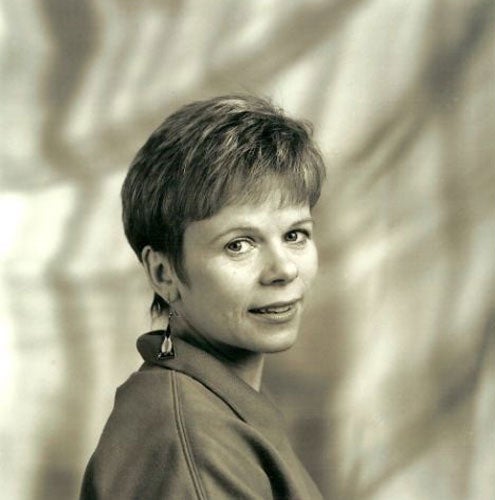Tessa Bonner: Soprano who sang with the Tallis Scholars for more than 25 years

Your support helps us to tell the story
From reproductive rights to climate change to Big Tech, The Independent is on the ground when the story is developing. Whether it's investigating the financials of Elon Musk's pro-Trump PAC or producing our latest documentary, 'The A Word', which shines a light on the American women fighting for reproductive rights, we know how important it is to parse out the facts from the messaging.
At such a critical moment in US history, we need reporters on the ground. Your donation allows us to keep sending journalists to speak to both sides of the story.
The Independent is trusted by Americans across the entire political spectrum. And unlike many other quality news outlets, we choose not to lock Americans out of our reporting and analysis with paywalls. We believe quality journalism should be available to everyone, paid for by those who can afford it.
Your support makes all the difference.One of the most distinctive and attractive voices of the British early music movement, Tessa Bonner's freshwater pearl soprano shaped the sound of the Tallis Scholars for over 25 years, and was heard in Renaissance, Baroque and classical repertoire across the world. A junior exhibitioner at the London College of Music, she turned to singing after working as a production assistant for the BBC. As a soloist she performed with the Taverner Consort, Gabrieli Consort, New London Consort, Academy of Ancient Music, St James's Baroque, The Lute Group, His Majestys Sagbutts and Cornetts, Collegium Vocale Gent, King's Consort and London Mozart Players, and was co-founder of Musica Secreta, the premiere ensemble specialising in music written by female composers of the 17th-century.
She was born Teresa Pollard in 1951, and grew up in Fulham and Hounslow, in west London. As a child she showed early promise as a pianist and clarinettist, and sang with her local choral society from the age of 16. After secretarial training at the BBC, she moved into television production, working on Face the Music and Blue Peter. When her first marriage (to Dyl Bonner) ended, she attended Leeds University as a mature student. Aware that her hands were too small for a career as a concert pianist (she also wore size two shoes), she took singing lessons with Honor Sheppard, then continued her vocal studies with Margaret Lenksy and Ellis Keeler at the Guildhall School of Music and Drama in London.
Vivacious, level-headed and innately musical, Tessa Bonner was soon an established artist. Her discography can be read as a history of Britishearly music. With the Tallis Scholars she made 37 recordings, including Spem in Alium and Media Vita. Asa soloist, her discs included Bach'sSt John Passion (with Andrew Parrott), Vivaldi's Gloria (with Richard Hickox), Die Zauberflöte (with RogerNorrington), and three versions of Monteverdi's 1610 Vespers (Taverner Consort, New London Consort and Gabrieli Consort).
As the conductor Peter Phillips recalls, Bonner's versatility enabled her to trace the high-arching treble lines of Tudor polyphony with ease. She was an intelligent, expressive singer, and could animate the most austere or florid phrases of the Baroque. The soprano Emma Kirkby, who sang with Bonner from the early 1980s, remembers her singing as "feminine, warm and sexy; guileless and true, but full of life; a voice that reflected the person." To the conductor Paul McCreesh it was "dusky, unusual, instantly recognisable." Klaus Neumann, a German record and radio producer who worked with her a lot in the 1980s, described her singing as "spotless and beautiful, infectiously charming". To this writer, it was a subtle, private smile of a voice, equally alluring in sacred and profane music.
That private smile sometimes concealed a fantastically saucy laugh. Among her colleagues, Bonner's sense of humour, practicality and unflappability were prized almost as highly as her musicality. Never one to play the diva, she was supportive of her fellow working mothers and encouraging of younger singers. From safety-pins to sticky tape, she was prepared for any emergency, whether singing plainchant by candlelight while processing through a Spanish car-park, deciphering directions to concert halls in the Far East, reworking breath marks for the high-altitude air of Denver, battling jet-lag or hoisting her luggage through a flooded Venice. As McCreesh observes, "Tessa never took singing for granted. However tough a tour might be, she always radiated pleasure in doing what she loved."
Off-stage, her musical tastes were catholic. She inherited a love of jazz from her father, Ron Pollard, adored Bessie Smith, the Beatles, Motown, and later, through her daughter Laura Curry, enjoyed the Arctic Monkeys and the Kaiser Chiefs. Bonner was a natural urbanite and a greedy lover of galleries, theatre, ballet and bookshops. With her mother, Peggy, she visited France in search of Bonnard and Matisse. The Tallis Scholars' American concert tours introduced her to Manhattan and Ann Arbor, where she indulged her passion for modern American literature, bringing home novels and short stories by writers as yet unknown to most British readers. As her long-term partner, the singer Donald Greig, points out, most of those writers were female, reflecting her "quiet but determined feminism".
Diagnosed with oral cancer in January 2008, she returned to work in May. She last sang on 27 November, in what was her 1,100th concert with the Tallis Scholars.
Anna Picard
Tessa Bonner, soprano: born London 28 February 1951; married 1972 Dyl Bonner (marriage dissolved 1980), 1986 Graeme Curry (one daughter; marriage dissolved 1999); died London 31 December 2008.
Join our commenting forum
Join thought-provoking conversations, follow other Independent readers and see their replies
Comments